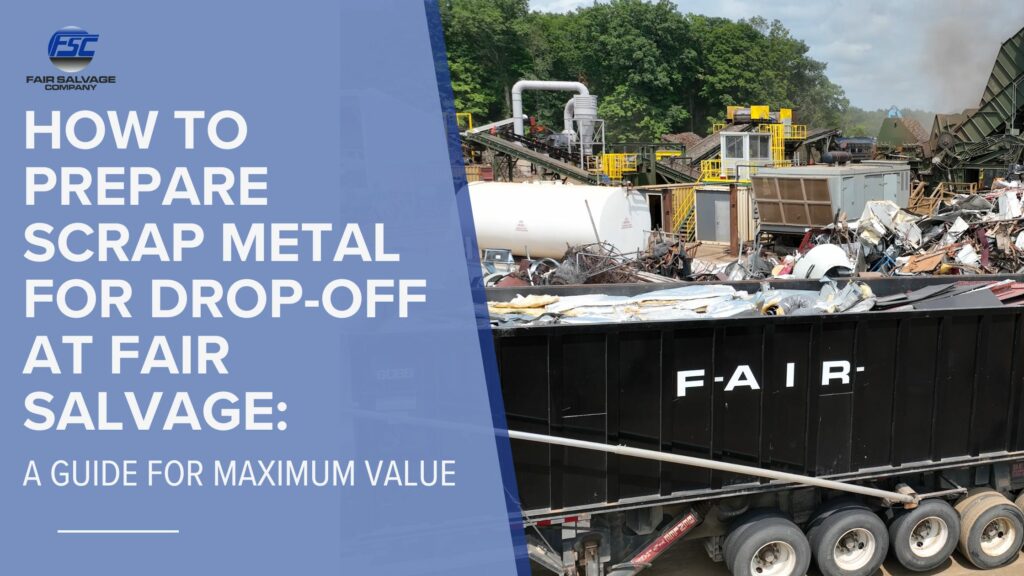Dropping off your scrap metal shouldn’t feel like a guessing game. Whether you’re a contractor, manufacturer, farmer, or weekend scrapper, preparing your load before you arrive at Fair Salvage helps us serve you faster—and helps you earn more for your metal.
At Fair Salvage Company, we’ve seen just about every type of scrap load roll through our yards in Clare, Chase, and Montcalm. And after decades in the business, we can say this for sure: the best-prepared loads are faster to unload, easier to weigh, and worth more.
This guide will walk you through how to prepare scrap metal for drop-off at any of our Michigan locations, whether you’re hauling in from a shop, jobsite, or garage.
Why Preparation Matters
Recycling metal isn’t just about clearing space—it’s about turning waste into value. And when you prepare ahead, you:
- Avoid safety issues
- Speed up drop-off and weighing
- Prevent valuable materials from being downgraded
- Earn more money per pound
“We take steel, copper, aluminum, brass, batteries, appliances—basically anything metal. But we don’t take propane tanks unless they’re fully emptied and have the valve removed.”
— Jon Fair, President, Fair Salvage Company
A little prep work goes a long way toward making your trip more profitable.
Step 1: Gather the Right Tools
Before you start loading your truck or trailer, grab a few basic tools. You don’t need anything fancy—just the right equipment to sort and clean your materials safely:
- A magnet to test for ferrous vs. non-ferrous metals
- Buckets or bins for keeping metals separated
- Bolt cutters or pliers to remove attachments
- Gloves and safety glasses for protection
- A marker or label system for identifying materials
- A scale (optional) if you want to get a rough weight beforehand
These simple tools make a big difference when it comes to separating materials and speeding up your time at the scale.
Step 2: Clean and Sort Your Metals
Sorting is the most important step in preparing your scrap—and it’s where many people leave money on the table. If you bring in a mixed load, we’re required to pay the lowest price grade across the whole pile.
“For manufacturers, keeping turnings separate is huge. A pile of steel turnings is worth less if it’s mixed with brass.”
— Jon Fair
To get the best pricing:
- Separate copper, aluminum, brass, and steel into individual containers.
- Use a magnet—if it sticks, it’s likely steel or iron (ferrous); if it doesn’t, it could be aluminum, brass, or copper (non-ferrous).
- Remove any non-metal materials, like wood, plastic, or rubber.
- For appliances, drain fluids and remove any closed containers.
Still unsure how to identify your metal? Check out our article on the difference between ferrous and non-ferrous metals.
Step 3: Remove Hazards and Non-Accepted Items
For safety reasons, we cannot accept certain materials. The most common disqualifier we see? Propane tanks. These must be fully emptied and have the valve removed—otherwise, they pose a serious risk during processing.
Fair Salvage does not accept:
- Closed containers (including sealed tanks)
- Materials with mercury, asbestos, or excessive contamination
- Non-lead-acid batteries or household waste
- Items with concrete, excessive dirt, or debris
Make sure your load is clean and safe to avoid any last-minute issues. For more information, visit our Recycling Services page.
Step 4: Organize for Faster Drop-Off
Once your metal is cleaned and sorted, load your truck or trailer in a way that’s easy to unload and weigh. For example:
- Group bins or buckets by metal type
- Keep heavy items on the bottom, light materials on top
- Secure loose materials to avoid spills in transit
- Stack like items (e.g., radiators, stripped wire, aluminum siding)
Organized loads make it easier for our team to provide accurate weights and faster service. We appreciate the extra effort—and we reward it in pricing.
Real-World Example: A Contractor’s Quick Turnaround
One of our regulars, a Mid-Michigan contractor from the Clare area, recently brought in a load of jobsite scrap. But instead of dumping it all together, he had pre-sorted it into five buckets: copper, aluminum, steel, brass, and wire.
Because everything was clearly labeled and separated, we were able to get him in and out in under 20 minutes—and his payout increased by 18% compared to his previous mixed-load visit.
That’s the power of preparation.
Fair Salvage Locations Make It Easy
No matter where you’re located in Central or Northern Michigan, there’s a Fair Salvage yard nearby. Visit our locations page to find the best yard for your drop-off.
Each site is clean, organized, and staffed with experienced team members ready to answer your questions and guide you through the process.
Bonus Resource: Download Your Free Guide
Need a cheat sheet for next time?
Download our Free Guide: 4 Ways to Maximize the Value of Your Scrap Materials
It includes tips, illustrations, and insider advice from the Fair Salvage team—perfect for contractors, farmers, or anyone looking to get the most from their scrap.
Prepare Today, Get Paid Tomorrow
You don’t have to be a full-time scrapper to benefit from smart prep. Every pound of metal is an opportunity—and when you bring it to Fair Salvage, you’re working with a family-owned team that puts honesty, efficiency, and top prices first.
Visit our Scrap Metal Pricing page to check current rates, and be sure to explore more tips on the Fair Salvage Blog.
Ready to Get Paid for Your Scrap?
Request a Quote Today
Get fast, friendly service and a great price when you come prepared.
👉 https://fairsalvage.com/request-a-quote/

